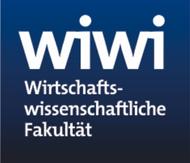Bachelor and masters theses
Bachelor and masters theses
Internal information on dissertations and masters theses
General information:
- The thesis must be preceded by a cover page, an outline and, if applicable, a list of symbols and figures. At the end of the thesis there is a bibliography and, if applicable, an appendix.
- The bibliography may only include sources that you have cited in the text. If you would like to cite further sources, please list them in a separate list under "Further reading".
- Longer mathematical treatises or proofs belong in an appendix and not in the running text. The same applies to supplementary tables and figures that are not absolutely necessary for understanding the text. All illustrations and all elements of the appendix must be referred to in the running text.
- Excluding the cover page, outline and lists, but including the appendix, a bachelor thesis can comprise 20 to 25 pages of text, a masters thesis 25 to 30 pages of text. The length of your final thesis depends very much on the topic you are working on. Therefore, the values given here are only to be understood as guidelines. Your supervisor can provide you with more specific information.
- The thesis must be submitted in duplicate to the Examination Office. One of the submitted papers must be accompanied by a CD with the text of the paper as a PDF file and the source file in the original format (e.g. .doc or .tex). If you have processed data, these must be added including the source codes with which they were processed (e.g. Excel calculations, R source code). Furthermore, the CD must contain all cited sources in the form of individual PDF files. In the case of books, the edited chapters or subchapters must be scanned and attached. Internet sources should be saved in PDF format and also transferred to the CD.
- Please also observe the provisions of your individual study and examination regulations.
- If you have little writing experience, we recommend the book "Deutsch für junge Profis: Wie man gut und lebendig schreibt" by Wolf Schneider. You can also get further useful tips at the writing centre.
Research:
If you have little research experience, we recommend the guide "How do I find specific information about economics and business studies?" by Mr Henning Klauß.
Further literature recommendations can be obtained from your supervisor.
Formatting:
We do not set any specific requirements for the formatting of the text. Overall, the final thesis must meet the requirements of a modern text document and fulfil the criteria of clarity, consistency and efficiency.
For orientation, you can take a look at an example of a scientific thesis.
<h class=textprimary
- Applications for supervision of the final thesis must be submitted centrally to the Examination Committee by 15 March for the summer semester and by 15 September for the winter semester.
- You will receive a concrete confirmation of supervision shortly after the applications have been reviewed.
- Admission to the final thesis must be applied for in person at the Examination Office.
- Your supervisor will contact you by email to arrange an initial consultation appointment with you.
- The final thesis must be registered no later than 14 days after the first consultation appointment and after the topic has been finalised with the responsible supervisor. Please bring the form issued by the Examinations Office.
- The long-term reservation of a topic is unfortunately not possible, as this would extend the actual processing time according to the study and examination regulations.
- The processing time for final theses begins on the day the topic is assigned by the supervisor. According to the respective FSO, the processing time for dissertations is 10 weeks, for masters theses 16 weeks.
- In total, we expect six hours of supervision time (email correspondence, consultation hours, etc.) per final thesis. We recommend that you make use of this time.
- According to the ASPO, the review of a final thesis takes place up to six weeks after the official end of the processing time. The review of final theses follows the review scheme discussed with you in advance.
- Immediately after the assessment has been completed and submitted to the Examinations Office, you will be informed of your result by email.
A selection of topics and work complexes for final theses at our chair is presented here.
The following sample topics for dissertations are available for selection. These can be customised after individual consultation.
- DCF valuation according to IDW S1: The Tax-CAPM
- DCF valuation according to IDW S1: Multiplier method
- DCF valuation according to IDW S1: Growth, inflation and retention
- DCF valuation according to IDW S1: Determination of borrowing costs
- DCF valuation in accordance with IDW S1: Impairment tests in accordance with IFRS
- Company valuation according to the economic value added method
- Company valuation using the multiples method
- Company valuation taking insolvency risks into account
- Capital cost estimation with multi-factor models
- Anomalies in return time series, e.g. calendar effects
- Portfolio optimisation according to Markowitz
- Portfolio optimisation under constraints
- Stylised facts of the electricity price
- Cross-border trading in the European electricity market
The following sample topics for masters theses are available for selection. These can be customised by individual agreement.
- Portfolio optimisation with constraints
- Estimation risks in portfolio optimisation
- Strategies for portfolio rebalancing
- Portfolio management, in particular factor investment strategies
- Electricity market and electricity market forecasts
